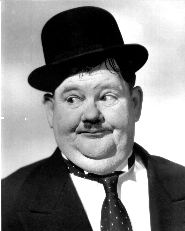Obesity was apparently hilarious in the 1870s. No one was wringing their meaty hands over having a huge ass–they celebrated their rolls of flesh. Hence, the existence of clubs specifically for the big-boned. In the August 30, 1872 Brooklyn Daily Eagle, there was vital coverage of a Connecticut clam bake held by one such club. (The Times also filed a report.) An excerpt:
“The formation of the celebrated Fat Men’s Club was in accordance with a well received rule in the economy of fat men’s lives. There is a time in the affairs of fat men, or rather of men who are growing fat, when they view the approach of the fleshly enemy with undisguised dread. Tell Jones at thirty-two that he is getting fat and he says, ‘ah, why bless my soul!’ and views his own proportions with comic alarm; tell him so at forty, and it will be found that he has long since ceased to worry about it; tell him so at forty-five, and lo! it is more than probable that he has begun to pride himself on his bulk.
What can’t be cured must be endured. All the stern giving up of beer and potatoes, all the perspiring exercise in the world, is of no weight against the steady advance–and we say it with all due respect–of one’s own ‘corporation.’ And so, as fat men are pretty generally, philosophers, it occurred to them that it might be a good idea to make a virtue of necessity, and club their fat together for convivial purposes.
Thus the fat men’s club. And certainly if there be one thing more than another, in this sad world, likely to provoke the twinkle of the eye and the smile of satisfaction, it is the contemplation of the jolly fat man. There be none so humorous as your fellows of paunch. But what a pity it is that Falstaff knew nothing of clam bakes! How royally he might have presided yesterday at South Norwalk, Conn., where the annual feast of the neighboring Brobdignagi on the succulent bivalves of the Sound took place! It is true that there were some ostentatious light weights present, who apparently were anxious for the reputation of fat men with barely good pretences, while against one snip of a fellow we see recorded only 199 pounds. How on earth he ever got into such a society we are at a loss to imagine, and if he doesn’t speedily make up the other pound (for 200 pounds, as we are advised, is the minimum weight upon which one may legitimately arrogate to himself the proud title of fat man), we shall feel bound to agitate his exclusion from this weighty society.
Politically, as becomes such philosophers as fat men are, the South Norwalk great ones are ‘sound.’ Nineteen of them only go for Grant, while 73 of them pant sympathetically for Greeley, (who, himself, is by no means a slim person, or a lean.) Thus, mark the concomitants of a reasonable bulk: Good nature, jovial clambakes, their names in the paper (and their weight), and sound political principles. Who wouldn’t be a fat man?”


